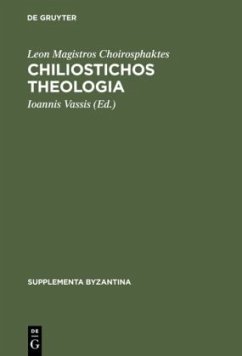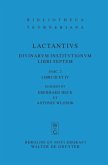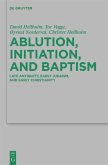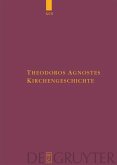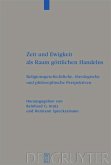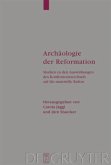The Theology in a Thousand Verses, written by Leon Magistros Choirosphaktes, an outstanding tenth-century Byzantine diplomat, is a philosophical and theological didactic poem addressed to a young emperor (perhaps Constantine VII Porphyrogenitus). The main objective of the present edition is to provide a linguistically accessible text. Handed down in a single manuscript (Vat. gr. 1257) under inauspicious conditions, the poem had been hidden away to this day and is printed here in its entirety for the first time since its creation some ten centuries ago. It is accompanied in this book by a translation and a commentary intended primarily to clarify the inherently difficult and sometimes obscure text. The volume also includes four indexes.
Die Theologie in tausend Versen des Leon Magistros Choirosphaktes, eines hervorragenden byzantinischen Diplomaten des 10. Jahrhunderts, ist ein philosophisch-theologisches Lehrgedicht, das an einen jungen Kaiser (Konstantinos VII. Porphyrogennetos?) gerichtet ist. Das Hauptziel der vorliegenden Ausgabe liegt in der sprachlichen Erschließung des in einer einzigen Handschrift (Vat. gr. 1257) nicht besonders vorteilhaft überlieferten Textes, der bis in unsere Tage verborgen geblieben ist und nun erst rund zehn Jahrhunderte nach seiner Entstehung zum ersten Mal in einer vollständigen Form gedruckt vorliegt. Das Gedicht wird von einer Übersetzung begleitet, die in erster Linie dazu dienen soll, die Wege zum Verständnis des an sich schwierigen und an manchen Stellen obskuren Textes zu ebnen. Den gleichen Zweck verfolgt auch der Kommentar. Vier Indizes runden die Ausgabe ab.
Die Theologie in tausend Versen des Leon Magistros Choirosphaktes, eines hervorragenden byzantinischen Diplomaten des 10. Jahrhunderts, ist ein philosophisch-theologisches Lehrgedicht, das an einen jungen Kaiser (Konstantinos VII. Porphyrogennetos?) gerichtet ist. Das Hauptziel der vorliegenden Ausgabe liegt in der sprachlichen Erschließung des in einer einzigen Handschrift (Vat. gr. 1257) nicht besonders vorteilhaft überlieferten Textes, der bis in unsere Tage verborgen geblieben ist und nun erst rund zehn Jahrhunderte nach seiner Entstehung zum ersten Mal in einer vollständigen Form gedruckt vorliegt. Das Gedicht wird von einer Übersetzung begleitet, die in erster Linie dazu dienen soll, die Wege zum Verständnis des an sich schwierigen und an manchen Stellen obskuren Textes zu ebnen. Den gleichen Zweck verfolgt auch der Kommentar. Vier Indizes runden die Ausgabe ab.

